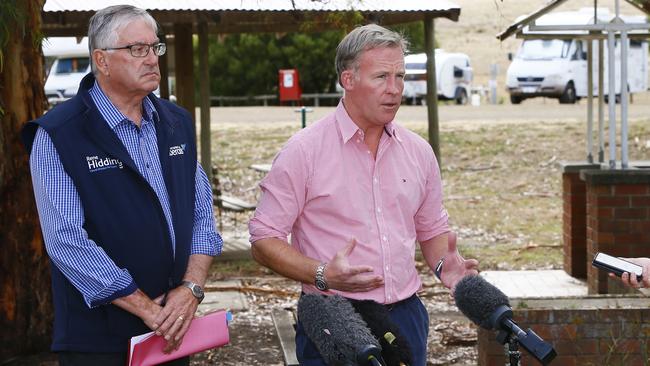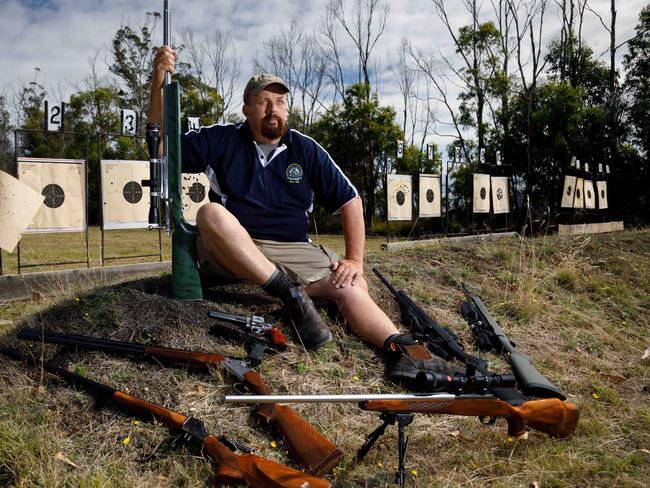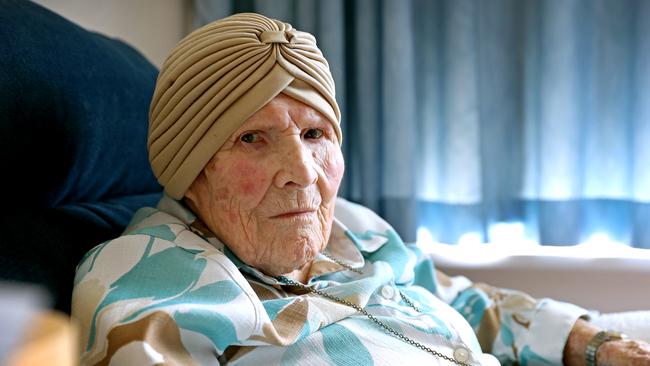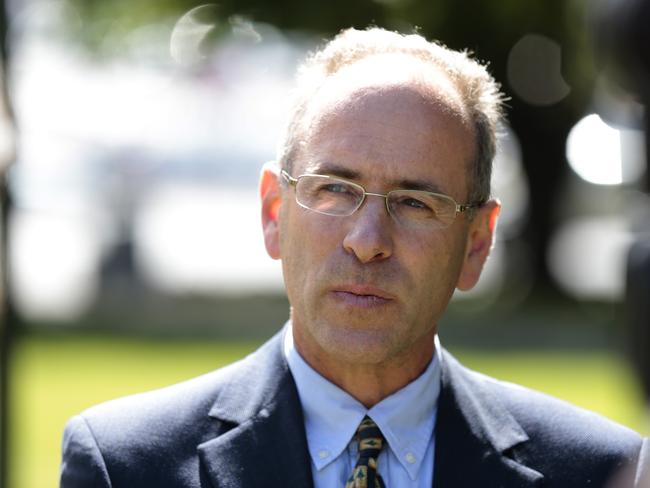TasWeekend: Gun laws in the firing line
AS the Tasmanian Government stands accused of trying to sneak through changes to its firearms policy, the national code introduced after the Port Arthur massacre looks increasingly shaky.
Tasmania
Don't miss out on the headlines from Tasmania. Followed categories will be added to My News.
YOUNG protesters at last week’s massive gun-control march in Washington had a simple but salient message for the US gun lobby and President Donald Trump: “It’s time. If they [the US Government] don’t do it now then we’re going to vote them out.”
Almost a million people converged to support teenagers as they spoke about gun violence and the need for tougher gun laws after the country’s most recent mass shooting, which resulted in the death of 17 people at a Florida high school.
The students’ poignant message is particularly potent in Tasmania, where the spectre of gun violence has loomed large since the Port Arthur massacre in 1996.
The timing of the message is reverberating in the state, where the recently re-elected Liberal Government has been accused of trying to sneak through changes to its firearms policy without consulting the public before the March 3 state election.
MORE: HODGMAN DEFENDS POLL-EVE FIREARMS PLAN
Critics of the policy say the commitments made by former police minister Rene Hidding amount to a watering down of the present gun laws and a departure from the National Firearms Agreement, a national response to the regulation of firearms made in the aftermath of the Port Arthur massacre.
They say it was formulated without consultation with the public, and was introduced virtually in the dead of night by way of a letter to members of a firearms consultation group that few had heard of, on February 9. There was no formal policy announcement, communicated either via the Liberal Party’s website or the media before the election.
“It’s not as though this is a minor technical area of law or legislation,” says political scientist Richard Eccleston, who is director of the Institute for the Study of Social Change at the University of Tasmania.
“They are relatively small changes but the context is everything, and the shadow of Port Arthur looms over Tasmania, so for that reason making commitments without seeking the consent of voters was, in my opinion, a problematic strategy.
“If the Government did actually make firm commitments about what government policy would be in the next Parliament, then that’s very poor practice. It should have been shared in a transparent way. It’s one thing to engage in consultation around policy development, but consultation should be inclusive and informing all Tasmanians about policy decisions.”
MORE: FORMER PREMIER HITS OUT AT PLANS TO WATER DOWN GUN LAWS
Roland Browne, the Hobart-based vice-chairman of Gun Control Australia, says the Government should have provided information about who was in the consultation group, its objectives and when it was established.
“People need to know what’s going on and who is feeding into the Government’s decision-making,” Browne says. “Why does the Government regard the stakeholders as just firearms owners? What about all the people in the community who are affected by firearms — women who have been affected by domestic violence; animal welfare groups who are concerned about the misuse of guns and their effect on animals; and public health and medical professionals. There are a large number of groups with knowledge that can feed into any sort of reform of gun laws.”

PREMIER Will Hodgman’s at times perplexing responses to media enquiries about the party’s firearms policy have likely inflamed concerns about it, and fuelled accusations of secrecy.
The Premier has consistently denied the policy is at odds with the updated National Firearms Agreement. Yet its commitment to extend the limit on gun-licence duration from five to 10 years and soften the regulations regarding minor storage offences contradict this.
When TasWeekend asked the Government in mid-March about the gun-licence recommendation and the nature and scope of the firearms consultation group, Hidding, who was police minister at the time, responded: “We understand this is an emotive issue for all Tasmanians, and I can assure everyone there will be very extensive consultation with all groups, including the Police Association and the wider community, before any legislation is tabled.
“Importantly, we have made it very clear we will not do anything that puts Tasmanians at risk or is inconsistent with the National Firearms Agreement. It’s also important to note it was the Hodgman Liberal Government that strengthened firearm storage requirements in 2017, meaning Tasmania now has the toughest storage requirements in the country.”
New Police Minister Michael Ferguson this week said the State Government would support a Legislative Council inquiry into gun reform, called for by the independent MLC Ivan Dean.
In contrast to the Government’s sometimes tentative defence of its new policy, Tasmanian firearms owners have spoken openly about their role in shaping it.
MORE: GOVERNMENT TO SUPPORT UPPER HOUSE INQUIRY ON GUN LAWS
Key members of the Government’s firearms consultation group — including the leaders of the Tasmanian Farmers and Graziers Association, the Tasmanian branch of the Sporting Shooters’ Association of Australia, and the Shooters, Fishers and Farmers Party of Tasmania — bristle at the suggestion the policy was formulated without consultation and in secrecy.
They say the media purposefully politicised the issue on the election eve, and re-traumatised some people by linking the policy to the Port Arthur massacre. They say the Government-led consultation process was transparent and lengthy (conducted informally over four years, and formally over the past 12 months with a group of stakeholders including representatives of gun collecting and hunting groups, clay target shooters, and Tasmania Police Firearms Services).

The Sporting Shooters’ Association of Australia (SSAA) Tasmania president Andrew Judd says Hidding presented the policy to the group well before the election, and news of it was circulating widely among member networks by mid-February.
“The backlash against the policy was mainly media generated,” Judd says. “There was no secret-squirrel business. It was all done openly. The minister sent that letter out to us and said you may distribute it however you see fit. We had the policy on our website four weeks before the election.”
The leader of the Shooters, Fishers and Farmers Party of Tasmania Wayne Turale, who wasn’t a member of the consultation group, agrees. “I sent an open letter to the media outlining the policy [on February 22] to ensure everyone was aware that these proposed changes were in the wind, so they could be discussed and there wouldn’t be this alarmist viewpoint,” he says.
MANY Tasmanians feel justifiably anxious about the prospect of gun reform and the possibility that more people will have access to the military-style, semi-automatic guns used in America’s mass murders and at Port Arthur. The Mercury this week reported Port Arthur survivor 96-year-old Ursula Wright’s story of survival and her plea to Premier Hodgman: “What possible justification can there be? I appeal to you not to weaken, but to strengthen these laws.”
One of the most controversial aspects of the policy relates to semi-automatic firearms. The Government has said it will consider introducing a new category covering all banned guns — to be known as category E — that would allow specialists to use them. It has committed to ask the national council of Police Ministers to consider expanding access to Category C firearms, which include semi-automatic guns, to allow a greater range of shooters to use pump-action and rapid-fire shotguns, for pest control work and in some competitions. Judd, of the SSAA, supports this: “The landowners and farmers have access to Category C firearms already, so it’s not a big issue for them. The people who will apply for one will have a genuine need to use them.”
The Government’s commitment to allow farmers to use sound suppressors on guns has likewise been controversial because of public safety concerns. “ We argued for the sound suppressors — not silencers, there’s no such thing,” says TFGA president Wayne Johnston. “They allow farmers to shoot more animals. They don’t cut out the noise entirely, but it’s an [occupational health and safety] issue for workers and farmers.”

He says the TFGA didn’t “push to have semi-automatic firearms available above and beyond what’s already available”.
“There were eight or nine groups that put their proposals to the minister. We never expected these things to go straight through and become law without public consultation,” Johnston says. “We are proposing these changes and we don’t want it to be an emotional debate because of what happened 20 years ago.”
Peter Darke, a consultation group member who represents recreational hunters, says the changes will not weaken the state’s gun laws. “I will be meeting with the Police Minister next week and I’ll be making it clear that while Category C firearms should be made available to those who need them, they shouldn’t be easier to get,” he says.
“Australia’s gun laws in my opinion are pretty good. What’s being proposed are just refinements.”
All the stakeholders say the recommendations are mostly consistent with what happens elsewhere in Australia. “There’s a lot of variation [in gun laws] between the states,” Judd says. “The National Firearms Agreement is not legally binding. We are trying to catch up with some of the other states. The only thing that we have asked for that’s not allowed in other states is the use of Category C firearms in competitions, but that’s not been promised.”
A report commissioned by Gun Control Australia confirms there have been more than 50 breaches of the national agreement by the states and territories, including in NSW where the use of sound suppressors is allowed and in Queensland where gun owners can be licensed for 10 years.

WHILE the shooting and farming groups’ arguments for “modest and commonsense” changes will be considered by the promised inquiry, questions remain about why the Government chose not to release its policy formally. Political scientist Eccleston says: “Given the timing and the looming election many observers would assume there were political motivations.”
Liberals may have been worried about losing votes to political parties like the Shooters, Fishers and Farmers, and tried to woo gun voters with the policy. There is increasing speculation about the courtship of the gun lobby by Australian political parties, and the group’s increasing influence on politics.
Judd says the Tasmanian SSAA doesn’t give money to political parties. “A resolution was made by the governing body of SSAA (Tas) last year that we are apolitical,” he says.
It is clear, however, that both the SFFP and SSAA are growing in stature and confidence in Tasmania. Turale says: “There’s a possibility the Government might reconsider these reforms [in light of the controversy] but that won’t help their credibility in the community at all. [The SFFP] is a fledgling political party yet we still got 8000 votes around the state.”
He says the Liberal Party adopted virtually every proposal and policy put forward by the party in the lead-up to the election, and he applauded “the fact they have listened to us”.
The SSAA likewise has a significant presence in the state. The organisation (of 187,000 members nationally) had 4893 registered Tasmanian members at the end of January.
“There’s no gun lobby,” Judd says. “There are people that petition the Government for commonsense changes, taking into account issues of public safety. We are not advocates for an American-style gun culture. Australia has a hunting culture, not a gun culture.”
Independent MLC Dean will put forward his motion for an inquiry into gun reform in mid-May. “I expect it will be supported,” he says. “It needs to happen now.”


